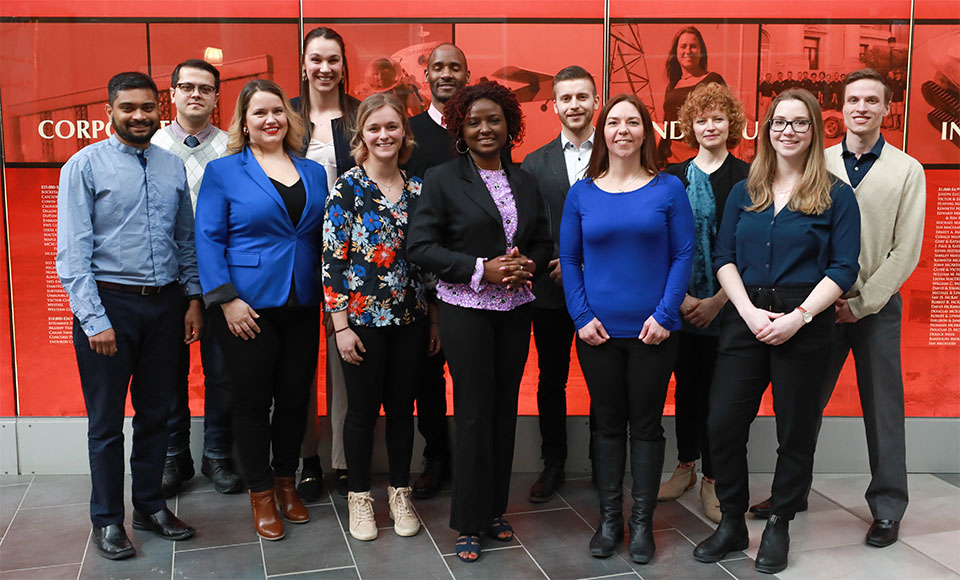
Master of Laws student rises to 3MT challenge
In a field of competitors usually populated by science and engineering students, LL.M. student Ihsan Daldaban was a rare find at the 2019 Three Minute Thesis (3MT) challenge. Despite having an unusual topic, the Robson Hall graduate program student stepped up to the plate on March 6th in the first heat to explain his thesis titled: “The Erosion of the Autonomy Principle of Standby Letters of Credit: A Comparative Analysis of the Newly Emerging Exceptions.”
Recognizing that sharing this very specific area of banking law and trade-finance with a general audience would not be the easiest thing to do, Daldaban first attended a coaching session held for 3MT participants, which he found to be very valuable. “Instructors recommended to us to make a story out of our research and present it in a way that will catch the audience’s attention,” he said. “In this regard, projecting our voice and using the stage efficiently was emphasized by instructors.”
Participants were also permitted to use one static slide, and on seeing some examples, Daldaban was able to maximize the use of his to help illustrate his research. He also was able to whittle his script down to an efficient 2 minutes and 40 seconds, and organized so as to first explain the topic and then convey the research. While his main concern was that his topic might not be very relatable for a general audience, he said, “I like the fact that it will be more challenging for me.”

LL.M. student Ihsan Daldaban
In explaining the topic to this writer, he said, “Standby letters of credit, also known as documentary guarantees, are one of the most frequently used instruments to secure payments both in domestic and international commerce. The autonomy principle, which is the most essential feature of standby letters of credit, is facing a great erosion as courts are constantly developing new exceptions to this principle. In my thesis, I am analyzing the extent of the erosion of the autonomy principle in Canada and doing a comparative analysis with the other common law jurisdictions to see how they are treating the newly emerging exceptions in order to find out implementable solutions that will save the autonomy principle, and accordingly, save the functionality of standby letters of credit in the Canadian marketplace.”
Simple as that, right?
In the end, while Daldaban was not ranked in the top 3 of his heat, he felt his presentation went very well. “I enjoyed the competition, especially hearing from students from different faculties was very interesting,” he said. “I was the only challenger who presented a business-related subject. As I thought before, it was probably not very relatable for the audience compared to other subjects presented. I had to explain the subject for 1.5 minutes, and in the second half of my presentation, I could speak about my research. Other challengers could directly jump into their research from the very beginning as they generally refer to the dynamics of our daily lives.”
Daldaban had seen winners of 3MT Competitions from different Canadian universities in the past, and had noted that none were from Law. “So, I thought maybe this year it would be me,” he said, and stepped up to the challenge, opening the door for other legal researchers to likewise share their work in the future.







IHSAN, I applaud your approach and designation of the principle of separation of contracts that are behind irrevocable standby letters of credit. I am a practitioner of SLC’s and have defended position as an issuer (commercial bank) as the lead letter of credit officer. The fact that an account party has a contract or obligation with the beneficiary is the base contract. To protect the issuer if the SLC a separate contract is entered into between issuer Bank and oblige applicant. The third contract is the actual SLC that the issuer in bound to. Your approach to keep contracts separate is well needed to educate lawyers attorneys and the courts.